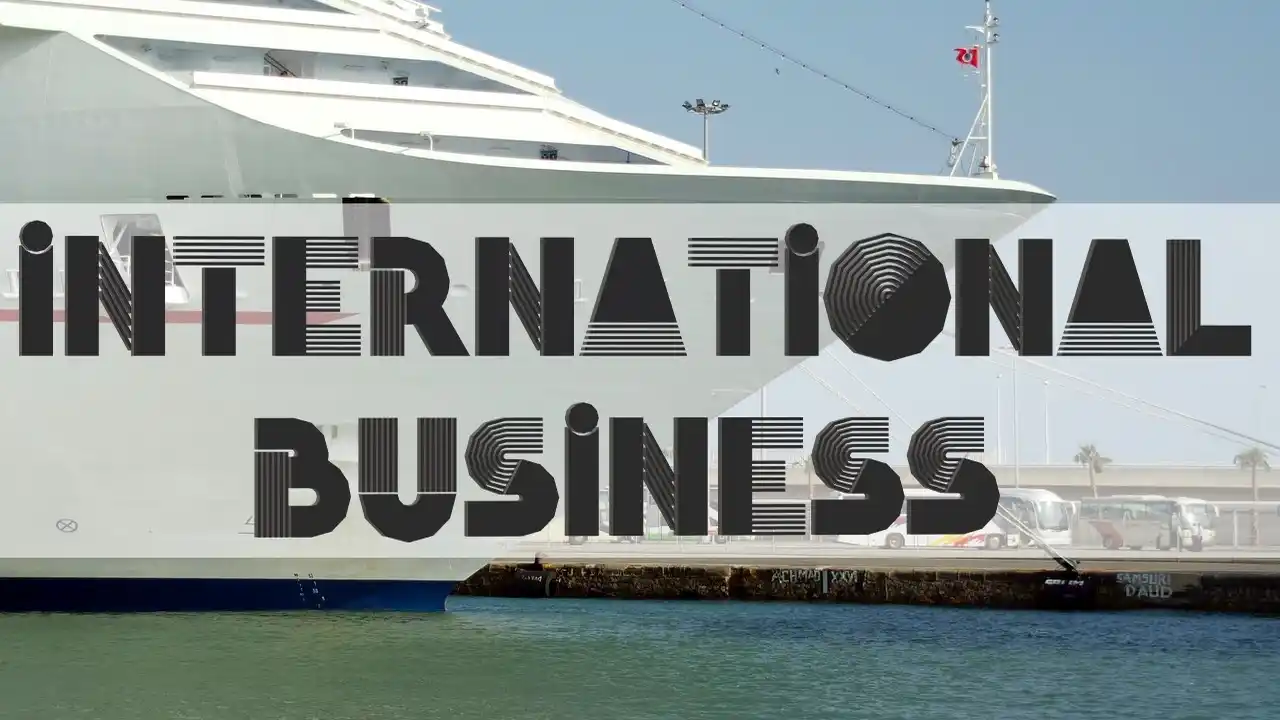Cut your prospects. To take advantage of the various economic cycles (recession and growth) that occur in different countries, businesses must look to foreign markets. This enables them to minimize sales and income fluctuations. Many businesses engage in international trade to secure themselves. By doing so, these companies can compensate for the advantages their competitors have on the international market, which could be detrimental to their domestic operations. This article discusses in detail about types of international business.
Similar to licensing, the franchising process can help a business expand locally and internationally. A parent company grants an affiliated firm permission to use the parent company’s name, trademark, and products in the affiliated firm’s business operations. When a company acquires a franchise, the franchisor is known as the franchiser and the franchisee is known as the franchisee. Many of the world’s most renowned restaurant chains have used the franchisee model to expand internationally. McDonald’s, Pizza Hut, Starbucks, Domino’s Pizza, and others, are examples.
Top 12 – Types of International Business
There are seven major types of international commerce that can use to categorize the numerous types of trade that occur worldwide. These are also known as various types of enterprises. Let’s examine each in greater detail. Read on to learn more about types of international business and become the subject matter expert on it. Read more about importance of international business environment to broaden your knowledge base.
Management Agreements
This method is utilized when a foreign country requires assistance managing an existing or ailing business. In exchange for its services, the property management company receives either cash or stock. Contracts are made for a specific duration.
Offshoring
“”Offshoring” and “outsourcing” go hand in hand. The act of moving a company’s operations to another nation is known as offshoring. This is typically accomplished through a procedure that is part of a functioning system, such as making items, or a support system, such as keeping track of finances.
In recent years, the government has utilized offshoring primarily to evaluate the caliber of technical and management services. Types of international business encompass various forms of global economic activities conducted by companies across borders.
Licensing
Permits are another method to expand your business internationally. In foreign licensing, one company, referred to as the licensor, grants another company the right to use its intangible (intellectual) property for a predetermined period of time and a predetermined fee.
Licenses for intellectual property are prevalent in the majority of the world’s nations. Examples of intellectual property are patents, copy rights, industrial procedures, and trade names. Basmati rice, for instance, is an Indian variety of rice.
Exporting
When businesses want to expand internationally, they typically begin by exporting their products. In other words, exporting is selling a product in a foreign market, either directly to foreign consumers or indirectly through foreign sales representatives and/or distributors.
It is anticipated that very few, if any, of the company’s employees will be relocated overseas, so expanding the business overseas through exporting will not have a significant impact on how the company manages its human resources.
Contra Trades
Counter trade is a form of international commerce in which goods exported are used as payment for goods imported. It is impossible to segregate some export and import transactions because they so intertwine. This is another types of international business.
Mergers
A business merger occurs when two or more companies combine to form a new company with the same objectives as the companies it merged with. There are various types of mergers, and each has its own set of documentation requirements based on the number of companies combining to form the new company.
Franchising
Leasing and licensing are as complementary as peanut butter and jelly. Franchising is a business model in which a parent company grants a license to another business to conduct business in a particular manner. In a franchise agreement, the conditions that a business owner must fulfill to successfully operate a business are typically much more stringent than in a licensing agreement.
In addition, licensing is typically reserved for companies that manufacture products, whereas franchising is more prevalent among service providers such as restaurants, hotels, and rental agencies.
Foreign Direct Investment
A company from another nation owns or operates a company in one nation, resulting in foreign direct investment. This Foreign Direct Investment (FDI) results in the construction of new structures in a foreign nation. They say that any company trading with or investing in foreign nations conducts business on a global scale.
A country engages in international trade when it dispatches goods or services to customers or consumers in another country, or when it imports goods from another country. In contrast, international investment is when a company uses its resources to operate a business in a country other than its own.
Strategic Partnerships
A partnership consists of two or more individuals who resolve to collaborate. A local company must strike the agreement with a global conglomerate operating in the region. Both of these categories are beneficial to the corporation’s stock and management. As a result, each individual receives an equal share of the wealth. This group can agree on how much equity and profit each individual will receive.
These types of international business ventures and partnerships are most successful when both parties have something of value to contribute. For instance, the domestic company may have a larger network within the country, whereas the international company may have more advanced technology. Both of these benefits could benefit the local business.
Tata and Jaguar’s collaboration in India is an excellent example of a commercial partnership. Sometimes, the government prohibits foreign companies from owning a 100 percent stake in certain industries, such as the defense industry. In such circumstances, global corporations may be able to profit from a new market by collaborating.
Multinational Corporations
Companies conducting business in more than one country often refer to as international corporations or multinational corporations. In fact, they established the enterprise in multiple countries. This category includes Amazon, Citigroup, Coca-Cola, and other companies.
These companies have separate operations in each nation, meaning that each country has its own facilities, personnel, and other infrastructure. The products and their distribution methods adapt to meet the demands of the local market. Nestlé, for instance, developed a Kit Kat with a matcha flavor for the Japanese market, where matcha is a popular beverage. Indian cuisine, on the other hand, lacks the same flavor. Personalizing products in this manner is one of the many advantages of being a global enterprise.
Offshore Manufacturing
When a company believes that producing goods in the host nation will benefit the economy, it does so. This may be the result of declining supply, labor, or tax costs. The local conditions in the host nation should be favorable for manufacturing and marketing. One of the types of international business is export-import trade, which involves the exchange of goods and services between countries.
Offshoring and Outsourcing
“Outsourcing” refers to the delegation of specific business duties to multinational corporations. For instance, accounting duties could outsource to a foreign company.
This approach is typically effective when the cost of performing these tasks in another country is substantially lower than in the country of origin. Numerous wealthy nations, including the United States, Australia, and the United Kingdom, outsource labor to India, China, and other countries because it is less expensive.
Offshoring involves relocating a position from its original location to another country, similar to outsourcing. In contrast, the management remains with the same corporation even if the structure is relocated to a different country. This distinguishes the circumstance. China is an excellent example of this because Apple Inc. manufactures its products there. On the other hand, Apple Inc. is solely responsible for it.
FAQ
How do I Go about Becoming a Foreign Trader?
Complete studies leading to a bachelor’s degree. Consider returning to school to earn a master’s degree. Participate in a work-study program. Acquire your license. Obtain the proper expertise in the subject. Skills in analyzing. Both written and spoken language can use to communicate with others. Communication between entities.
What Exactly is the Distinction between Global and Foreign Business?
A company qualifies as global when it has facilities (such as factories and distribution centers) in more than one country. This is different from a foreign corporation, which may sell its products in multiple countries but only operates in one.
What are the Procedures for Conducting Foreign Business?
Import/export, licensing, franchising, management contracts, joint ventures, and foreign direct investment, which could be a transaction or a new company, will examine.
Final Words
Multinational corporations use overseas branch offices, independent agents, licensing agreements, strategic partnerships, and foreign direct investment as part of their international business strategies. They assist the foreign company in combining opportunities and revenues from numerous regions, which is advantageous for the company. In this article, we will discuss about types of international business in brief with examples for your better understanding.






